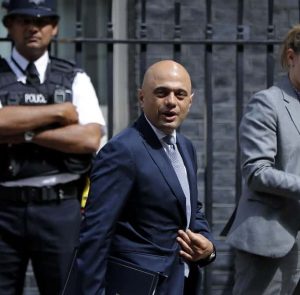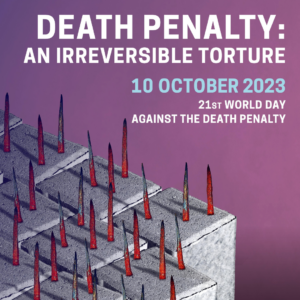
Sajid Javid has betrayed our values by giving way on the death penalty
- DPP in the Media
- 25 Jul 2018
Originally published in The Guardian, 25 July 2018
By Parvais Jabbar, Co-Executive Director, The Death Penalty Project
The UK abolished the death penalty over 50 years ago. Today, more than three-quarters of the world’s countries have abolished the death penalty in law or in practice, joining the ever-growing international consensus that the death penalty is a cruel and inhuman punishment that violates the right to life.
The UK’s principled opposition to the death penalty paved the way for its firm position on capital punishment in its relations with other countries: a commitment “to oppose the death penalty in all circumstances as a matter of principle”. In practice, this means the government must not provide assistance in criminal proceedings where there is a chance that the death penalty might be imposed, without first seeking assurances from the prosecuting government that the punishment will not be sought. But it goes wider than this: abolition of the death penalty has been one of the UK’s leading human rights foreign policy objectives for many years, reaffirmed last week by the Foreign Office at the launch of its annual human rights report.
The Foreign Office provides financial support to organisations working to reduce the use of the death penalty globally. The Death Penalty Project has been a beneficiary of such grants for many years: this support makes a real difference in moving countries where it still exists closer to abolition.
The UK was the first country to develop a global position on the abolition of the death penalty, and our approach has encouraged other nations to do the same. The UK’s strong voice against the death penalty is particularly critical when you consider that many of the countries that retain the death penalty around the world inherited their death penalty laws from us.
That’s why it was so troubling to find out earlier this week that the home secretary, Sajid Javid, had privately agreed to assist the US in the federal prosecution of two formerly British men without seeking assurances that they would not face the death penalty. The revelations have caused outrage across the political divide, as Javid appears to have abandoned the UK’s longstanding and absolute opposition to the death penalty.
Javid’s apparent concession that there may be some circumstances where the UK is willing to turn a blind eye to the use of capital punishment is deeply worrying. It makes a mockery of the UK’s position elsewhere in the world, and undermines decades of diplomacy. We have moved overnight from a position of moral clarity to one of ambiguity and incoherence. This decision could lead to the government taking a step back on other human rights guarantees that are central to our values as a liberal democracy.
We believed the UK’s opposition to the death penalty was grounded firmly in a belief in universal human rights and an understanding that the death penalty, in the government’s own words “undermines human dignity”. In his letter Javid said he was of the “view that there are strong reasons for not requiring a death penalty assurance in this specific case”.
But the details of the case are irrelevant. The government’s commitment must hold true in all circumstances, regardless of the nature of the offence in question. Any aberration from this position is not just a departure from a long-held and principled policy, but is damaging to human rights everywhere. This unprecedented action has huge implications, not only for our leadership on the international stage, but also for any individuals, British or otherwise, who may be facing the death penalty around the world.




















